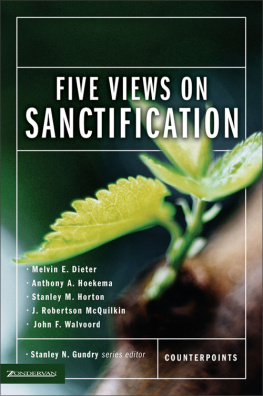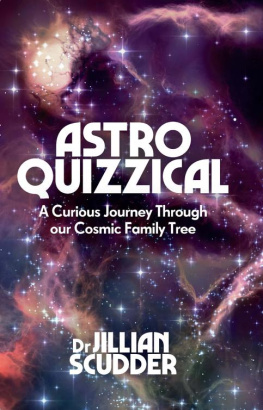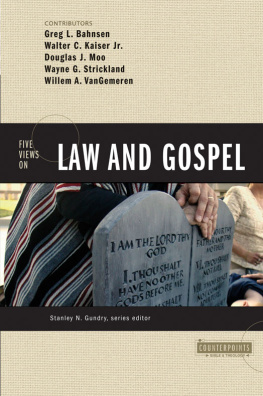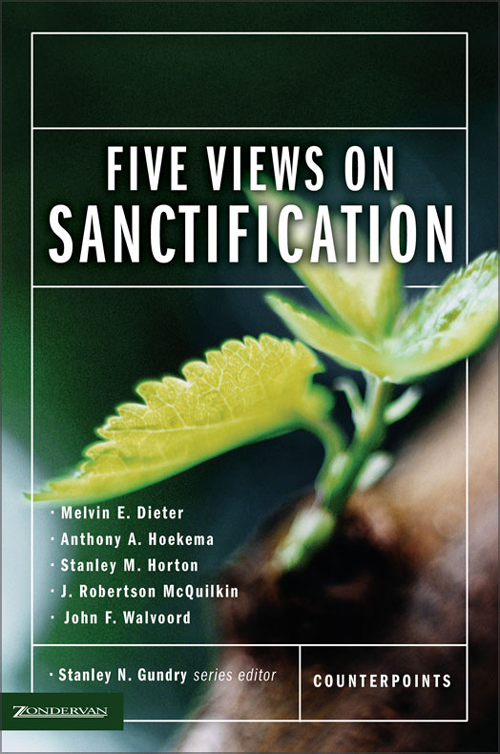Books in the Counterpoints Series
Church Life
Evaluating the Church Growth Movement
Exploring the Worship Spectrum
Remarriage after Divorce in Todays Church
Understanding Four Views on Baptism
Understanding Four Views on the Lords Supper
Who Runs the Church?
Bible and Theology
Are Miraculous Gifts for Today?
Five Views on Apologetics
Five Views on Law and Gospel
Five Views on Sanctification
Four Views on Eternal Security
Four Views on Hell
Four Views on Salvation in a Pluralistic World
Four Views on the Book of Revelation
How Jewish Is Christianity?
Show Them No Mercy
Three Views on Creation and Evolution
Three Views on Eastern Orthodoxy and Evangelicalism
Three Views on the Millennium and Beyond
Three Views on the New Testament Use of the Old Testament
Three Views on the Rapture Two Views on Women in Ministry
FIVE VIEWS ON
SANCTIFICATION
Melvin E. Dieter
Anthony A. Hoekema
Stanley M. Horton
J. Robertson McQuilkin
John F. Walvoord
Stanley N. Gundaryseries editor

CONTENTS
Stanley N. Gundry (S.T.D., Lutheran School of Theology at Chicago) is Vice President and Editor-in-Chief of the Book and New Media Group at Zondervan Publishing House. He graduated summa cum laude from both the Los Angeles Baptist College and Talbot Theological Seminary before receiving his Masters of Sacred Theology from Union College, University of British Columbia. With more than 35 years of teaching, pastoring, and publishing experience, he is the author or co-author of numerous books and a contributor to numerous periodicals.
The five authors of this volume describe the pathway to a holy, or sanctified, life. Each writes from an Evangelical perspective that views the Bible as authoritative and that considers a restored relationship to God through faith in Christ as an individuals greatest need and delight. This underlying unified perspective, however, encompasses various definitions of sanctification. The authors outline their own understanding of the doctrine and then address directly-and cordially-the views of their colleagues.
In spite of having theological backgrounds and convictions that diverge sharply in some areas, the authors stand together at several points in their understanding of sanctification. First, all agree that the Bible teaches a sanctification that is past, present, and future. It is past because it begins in a position of separation already gained in Christs completed work. It is present in that it describes a process of cultivating a holy life. And sanctification has a future culmination at the return of Christ, when the effects of sin will be fully removed. Second, all agree that the process of sanctification requires believers to strive to express Gods love in their experience. They must devote themselves to the traditional Christian disciplines and daily make the hard choices against evil and for Gods ways of righteousness. Finally, all agree that the Bible promises success in this process of struggling against personal sin, through the power of the Holy Spirit.
But how does one achieve success in sanctification in this life? And how much success is possible? Is a crisis experience following ones conversion normalor necessary? If so, what kind of experience, and how is it verified? As will be obvious, the authors disagree in their answers to these questions.
In evaluating the evident differences, the reader must note carefully the respective definitions of key biblical terms (especially sin, old man/new man, perfect, and the Spirits baptism) as well as the Wesleyan term entire sanctification. In tracing the use of these concepts in the arguments and counterarguments, the student of sanctification must appreciate-as do all the authors-the need to preserve both divine sovereignty and human responsibility. Ideally, this discussion of sanctification will provide, not just stimulating theological divertissement, but encouragement to travel more thoughtfully the ancient and yet contemporary road to holiness, without which no one will see the Lord (Heb. 12:14).
The Publisher
Melvin E. Dieter
Almighty God, unto whom all hearts are open, all desires known, and from whom no secrets are hid: cleanse the thoughts of our hearts by the inspiration of Thy Holy Spirit, that we may perfectly love Thee, and worthily magnify Thy Holy Name; Through Christ, Our Lord. Amen. (Book of Common Prayer, 1695)
THE WESLEYAN WAY
A prayer for holiness and the perfect love of God has been a persistent petition of the church of Christ throughout its history. John Wesley, father of the Methodist family in the Christian world, regularly included this widely used collect of the Anglican churchs Book of Common Prayer in his personal devotions and public ministry. For over two hundred years now, he and his followers have been known for their concern for an ethical faith. The Wesley an doctrine of entire sanctification, or Christian perfection, expresses that concern most definitively.
Renewed and continuing interest in Wesley studies has helped to broaden some of the longstanding characterizations of John Wesley as a person and as a theologian within the larger Christian tradition. His distinctive contribution was his conviction that true biblical Christianity finds its highest expression and ultimate test of authenticity in the practical and ethical experience of the individual Christian and the church and only
It is becoming increasingly evident, however, that behind all his evangelistic passion and ministry of discipling lay a full-orbed theological understanding. Most of that understanding was built squarely upon the central doctrines of the Reformation and earlier Christian tradition as outlined in the Articles and prayer book of his Anglican faith. One emphasis, however, distinguished his interpretation of Gods ways with men and women from that of the religion of his day, namely, the conviction that biblical Christianity must ultimately demonstrate its reality in a faith that works by divine love in the crucible of everyday life. This passion for seeing Gods truth expressed in the experience and witness of faithful Christians was strongly fortified by his conviction that every person could respond positively or negatively to Gods offer of salvation as they would. This freedom was of grace and not of nature. The realization that spiritual experience represented interaction between the sovereign grace of God and the freedom of humankinds response made Wesley a persistent observer of the spiritual experience of his followers. He believed that the knowledge of how Gods truth translates itself into the experience of Gods people by the Holy Spirit through the Word and the means of grace was critical for our proper understanding of the truth itself. Consequently not only the experience of Christians he knew but the whole experience of the church in the past engaged his attention.
He was particularly interested in the life and witness of the early church fathers because he believed that their experiences of grace demonstrated best how men and women in the past had responded in wholehearted commitment and love to the will of God in their lives.












